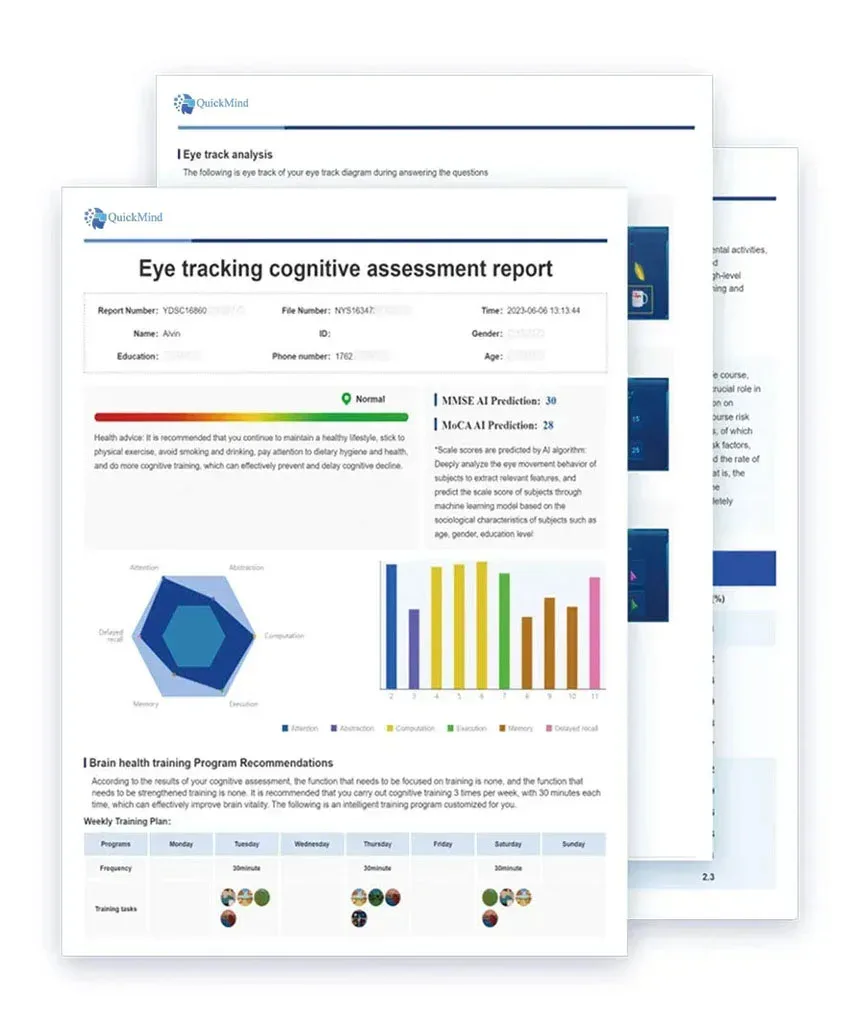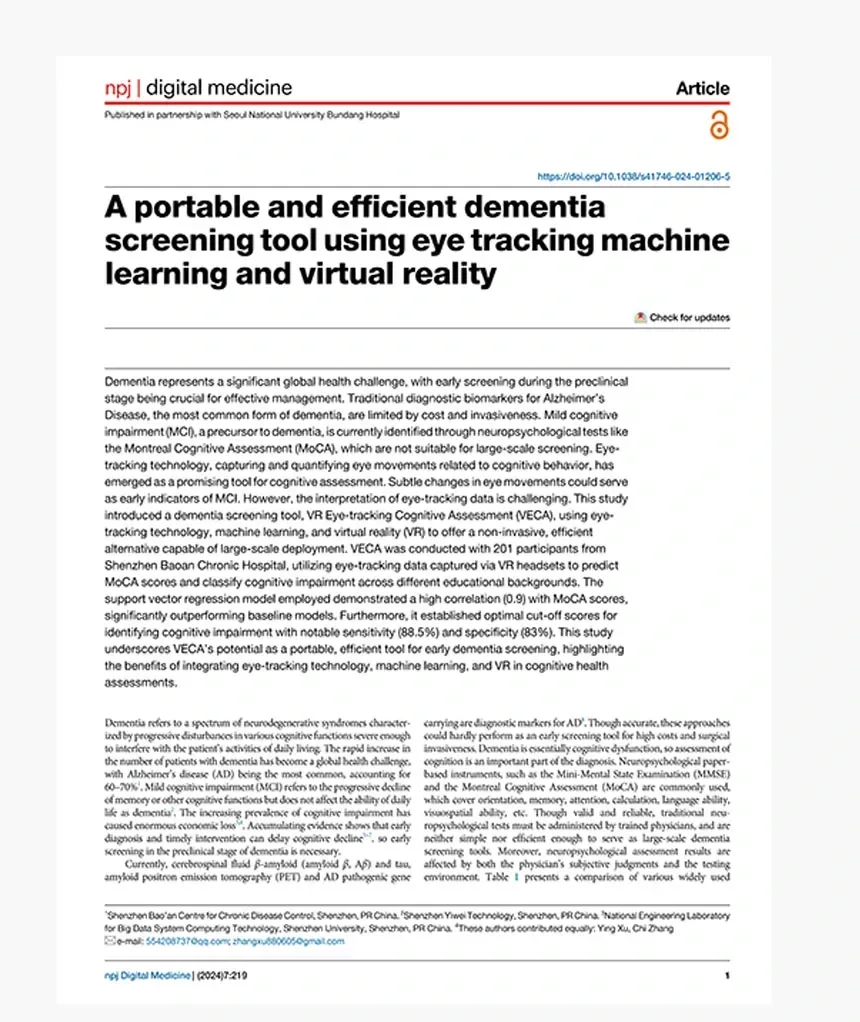
Progressive research proposes that Virtual Reality modality can significantly advance the welfare of individuals managing brain function deterioration. By transporting them to soothing atmospheres, VR furnishes a distinctive opportunity for neural stimulation, mood control, and relational exchange. Numerous evaluations have indicated that VR therapy can alleviate uneasiness, worry, and depression in dementia those diagnosed while also augmenting their memory, focus, and linguistic talents.
- VR permits individuals with dementia to recollect valued experiences through interactive reenactments.
- In addition, it can allocate a protected and assisting space for community involvement, cultivating a consciousness of relationship and inclusion.
- Researchers propose that VR therapy has the capacity to transform dementia treatment by supplying new and progressive avenues to combat the intricate challenges faced by clients struggling against this affliction.
Innovative Tech Treatments for Alzheimer's
Developing software-based approaches are showing promise in the sphere of mind sharpening for subjects experiencing Alzheimer's dementia. These programs exploit automated tools to stimulate brain function and conceivably curtail the progression of the syndrome. Motivating routines, personalized mentoring, and cognitive training are some demonstrations of tactics being explored in this growing field. While experiments are proceeding, digital therapeutics enable a alternative course for boosting the conditions of those affected by cognitive Alzheimer's illness.Novel VR Techniques for Alzheimer's Intervention
Pertaining to people suffering from Alzheimer health issue, the gradual degradation of recollection and neural capabilities can significantly impair their aptitude to participate with the environmental sphere. This debilitating illness often brings about in remoteness, disorientation, and a lowered individuality. Recent breakthroughs in virtual reality technology unveil a groundbreaking prospect to address these issues by developing immersive realities that can trigger the brain and invigorate cognitive function.
Immersive virtual scenes developed specifically for Alzheimer's individuals can send them in recognizable locations, such as their first house or a treasured public park, eliciting positive memories and mitigating anxiety. Through interactive endeavors, these virtual universes can also test cognitive abilities like recollection, focus, and problem-solving.
The potential benefits of virtual reality in Alzheimer's remediation are great. Early analyses have confirmed promising results, with persons showing improvements in cognitive function, mood, and overall quality of life. As this tool evolves, it holds the key to revolutionizing the way we approach Alzheimer's disease, making available a new pathway for intervention and strengthening.
Virtual Recollection Therapy for Alzheimer's
Reminiscence therapy is a traditional technique used to strengthen cognitive function and emotional well-being in individuals with Alzheimer's disease. This long-standing form of therapy involves prompting patients to relate past experiences, often through dialogue. However, a advanced approach is emerging: VR-mediated reminiscence therapy.
This immersive tool utilizes virtual reality headsets to shift patients in convincing environments that trigger memories from their past. By recapturing these computer-generated environments, individuals with Alzheimer's can relate with their past in a influential way.
The Potential of Virtual Reality to Improve Memory and Cognition in Dementia
Virtual reality (VR) is emerging as a novel resource in the fight against dementia, presenting modern ways to boost memory and cognition. By designing immersive worlds, VR can empower individuals with dementia recall memories, connect in meaningful activities, and advance cognitive competencies. Studies have proved that VR interventions can produce measurable improvements in memory recall, attention, and navigational awareness. Moreover, VR provides a protected and positive space for individuals with dementia to interact, reducing feelings of isolation and stress.
- Likewise, VR can be fitted to individual needs and preferences, permitting enhanced levels of participation.
- Even with the capabilities of VR, additional research is needed to fully understand its long-term outcomes in dementia care.
Memory Restoration and Social Reinforcement through VR in Alzheimer's
Virtual augmented spaces is emerging as a revolutionary solution in the domain of brain degenerative illnesses. By simulating captivating and participative settings, VR has the opportunity to spark memories, develop social interaction, and elevate the overall quality of life for patients coping with Alzheimer's. One of the most promising aspects of VR is its ability to shift users to recognizable spots and encounters from their past. Whether it's a walk through a childhood home or a simulation of a beloved holiday, these virtual experiences can recall happy memories and bolster VR cognitive performance. Furthermore, VR can promote social interaction by associating individuals with others who share similar pastimes. This can be particularly profitable for people with Alzheimer's who may encounter obstacles with traditional social mixing. By delivering a safe and captivating virtual space, VR can diminish feelings of isolation and loneliness, which are common among subjects coping with Alzheimer's. Overall, VR holds immense promise for transforming the lives of users with Alzheimer's by refreshing memories, reestablishing connections, and improving their quality of life. As technology evolves to progress, we can expect even more innovative applications of VR in the field of dementia care.Exploiting Cognitive Training: Exploiting VR as Cognitive Aid in Alzheimer's
Simulated immersive settings is rapidly emerging as a cutting-edge tool in the realm of cognitive training, particularly for patients coping with Alzheimer's disease. By immersing patients in interactive and engaging virtual environments, VR-based interventions can boost cognitive functions such as memory, attention, and problem-solving. These games routinely incorporate elements of storytelling, exploration, and social interaction, making the training process very motivating. Studies have shown that VR-based cognitive training can lead to significant improvements in cognitive performance, conceivably delaying the progression of Alzheimer's symptoms. Moreover, VR provides a safe and controlled environment for patients to practice new skills and build their confidence.
- Interactive gaming in VR training can make it highly engaging and attractive for persons with mental decline.
- VR simulations can offer authentic scenarios that spur and energize cognitive functions.
- Personalized VR experiences can cater to unique demands and approaches.
A Simulated Second Chance: Exploring the Benefits of VR Environments for Individuals with Dementia
Engaging digital environments offer a unique and advantageous avenue for users with cognitive impairments. These methodologies can recreate familiar environments, allowing those affected by cognitive decline to access cherished memories and support a sense of contentment. By alleviating the difficulties of dementia, VR worlds have the option to upgrade quality of life for both subjects and their advocates.
- Analyses indicate that VR strategies can effectively impact cognitive function, mental well-being, and even locomotor abilities in individuals with dementia.
- Moreover, VR creates a safe and regulated environment for engagement, reducing the risk of stress.
- In addition, VR can enhance social contacts by allowing individuals with dementia to socialize in online activities with others.
Virtual Reality for Prompt Alzheimer's Screening and Intervention
Alzheimer syndrome exhibits a intricate conundrum, often staying hidden in its early stages. Though, virtual reality (VR) is showing promise as a trailblazing tool for screening for Alzheimer's. Through immersive virtual worlds, VR can examine cognitive competence in ways that traditional methods have difficulty to. This power allows for fast support strategies, potentially delaying disease progression and boosting the quality of life for people with Alzheimer's.
- Virtual reality technology offers secure and structured assessments of memory and attention.
- Specialized virtual sessions support personalized cognitive engagement for users.
- Computer-generated spaces provide social conditions for Alzheimer's clients to bond and mingle.
Facilitating Dementia Communication and Interaction Through VR
{In the realm of dementia care, innovative technologies are emerging to boost the lives of users with memory loss diseases. Virtual reality (VR) is one such platform that holds immense capacity for bridging the communication and interaction gap often experienced by those with dementia. By simulating captivating interactive virtual spaces, VR can stimulate cognitive function, reduce behavioral issues, and ultimately improve the overall well-being of participants handling dementia.
VR experiences aligned with dementia treatment goals can range from nostalgia therapy sessions that transport participants to cherished memories, to interactive games that promote social interaction and cognitive exercise. Furthermore, VR has the skill to connect clients facing dementia with social networks, regardless of physical isolation, fostering a sense of connection.
- VR can enable in reducing agitation and anxiety by providing a calming and engrossing environment.
- Assessments have shown that VR interventions can lead to improvements in cognitive function, mood, and social interaction in dementia patients.
- As technology develops in progress, we can expect even more innovative and {effective|beneficial|helpful|powerful|impactful|successful|productive|efficient
